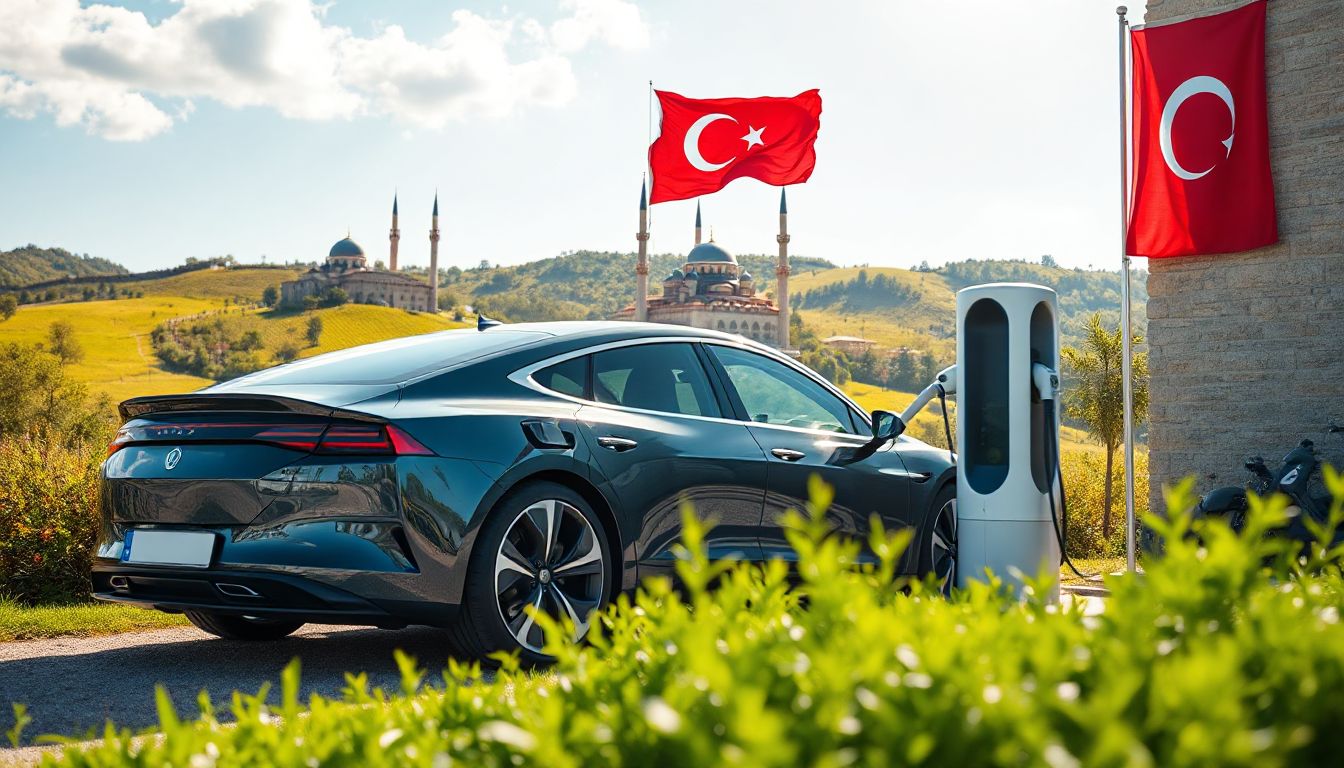Introduction
Electric cars are becoming more popular worldwide, and Turkey is no exception. As more drivers choose electric vehicles (EVs), the need for a solid charging network grows. Without enough charging stations, people may hesitate to switch to EVs. The Turkish government has set goals to improve this infrastructure and encourage EV use. Market data shows rapid growth of EV registration in Turkey, highlighting the country’s move toward cleaner transportation. This article explains the current EV charging scene in Turkey, the hurdles, and what’s coming next for electric car charging.
The Current State of Electric Car Charging Infrastructure in Turkey
Overview of Existing Charging Stations
Turkey already has a decent number of charging stations, but there’s room for expansion. Public chargers are mainly clustered around big cities such as Istanbul, Ankara, and Izmir, with fewer options in rural areas. There are different types of chargers available:
- Level 1 chargers: Take longer, mostly for home use.
- Level 2 chargers: Faster and common in public stations.
- Fast chargers: Provide quick top-ups, often found near highways and key locations.
Some of the key companies operating charging points in Turkey include local firms and international brands that are investing in the market. More stations are appearing daily, but coverage does not yet meet the needs of a growing EV fleet.
Government Policies and Regulations
Turkey has a national EV strategy that aims for significant milestones by 2030. The government wants to make electric cars a major part of transportation. To do this, they offer incentives and subsidies to encourage the building of new charging stations. Regulations are also developing to make it easier for private businesses and municipalities to install chargers. These steps are vital to expand the EV infrastructure across Turkey efficiently.
Market Trends and Adoption Rates
The number of electric cars on Turkish roads is climbing fast. Registration figures increased sharply in recent years, driven by rising consumer interest and government support. Early adopters include tech-savvy individuals and environmentally conscious consumers. These users often share their experiences, helping others become more aware of EV benefits. As awareness grows, more people see EVs as practical options, boosting demand for charging spots.
Challenges Facing Electric Car Charging Expansion in Turkey
Infrastructure Limitations
Many parts of Turkey still lack enough charging stations outside the city centers. Rural regions often face longer travel times due to fewer options. The electrical grid in some areas isn’t strong enough to support many new chargers. Installing charging stations in hard-to-reach areas can be complicated and costly. This uneven spread limits EV growth outside big cities.
Economic and Regulatory Hurdles
Building and maintaining charging stations costs a lot. Without clear pricing standards, consumers may face confusing or high bills. Sometimes, long bureaucratic processes delay project approvals, slowing progress. Policy gaps also make investors hesitant, which stalls infrastructure growth even further.
Consumer and Industry Awareness
Many Turkish drivers still don’t fully understand how EVs benefit the environment or save money. Public misconceptions about EVs, like fears over battery life or charging convenience, are common. The limited availability of fast chargers also leaves drivers worried about long trips. Different charging standards between brands confuse users, making charging less simple.
Innovative Solutions and Upcoming Projects
Public-Private Partnerships and International Cooperation
Partnering with private firms and international companies is helping Turkey grow its EV network faster. Such collaborations combine resources and expertise, leading to more stations in key locations. Several pilot projects and joint ventures focus on building a reliable and widespread charging network.
Technological Advancements
New charger technology is making EV charging faster and smarter. Ultra-fast chargers are starting to appear, reducing charging time to almost a coffee break. Smart systems, connected via the Internet of Things (IoT), help manage energy use efficiently. Some stations even use renewable energy sources like solar or wind to power their chargers, making the process more sustainable.
Upcoming Infrastructure Projects
Large-scale projects are on the horizon for Turkey. These include expanding charging stations along major highways, near tourist spots, and in busy commercial districts. Some cities plan to integrate smart city initiatives with EV infrastructure, creating a more connected, efficient transportation network. These improvements will make long-distance travel and daily commuting easier for EV owners.
Practical Tips for EV Owners and Prospective Buyers in Turkey
Navigating the Charging Network
Using apps and online maps, drivers can quickly locate nearby chargers. Planning trips in advance helps avoid running out of battery. When charging, it’s smart to check the station’s compatibility and charging speed to save time and money.
Choosing the Right Charging Option
- Level 1 chargers: Best at home if you have a garage or driveway.
- Level 2 chargers: Ideal for daily charging at workplaces or public stations.
- Fast chargers: Perfect for quick top-ups during long drives. Choose based on your vehicle and how often you drive.
Future-proofing and Investment Decisions
When buying an EV, consider how accessible charging stations are around your home or workplace. Keep an eye on government incentives and new station openings. Staying informed ensures your vehicle fits well with the changing infrastructure.
The Future of Electric Car Charging in Turkey
By 2030, experts expect EV market share in Turkey to jump significantly. Advances like wireless charging—where cars charge on the go—may become common. Vehicle-to-grid technology will allow EVs to supply energy back to the power grid, helping balance demand. Renewable energy is expected to play a big role, powering chargers sustainably. Governments and private companies are investing heavily, promising a stronger, more reliable charging network. These efforts will make owning and using EVs easier than ever.
Conclusion
Turkey is making strides in building a robust electric vehicle charging network. While current infrastructure faces challenges like uneven coverage and high costs, innovative projects and policies are underway. Growth depends on continued investment, new technology, and public awareness. If you’re considering an EV or already own one, staying informed about the latest developments will help you make the best use of charging options. The future looks bright for Turkey’s journey toward sustainable transportation—more charging stations, faster solutions, and greener energy are on their way. Now’s the time to plan ahead and embrace the electric revolution transforming Turkish roads.




